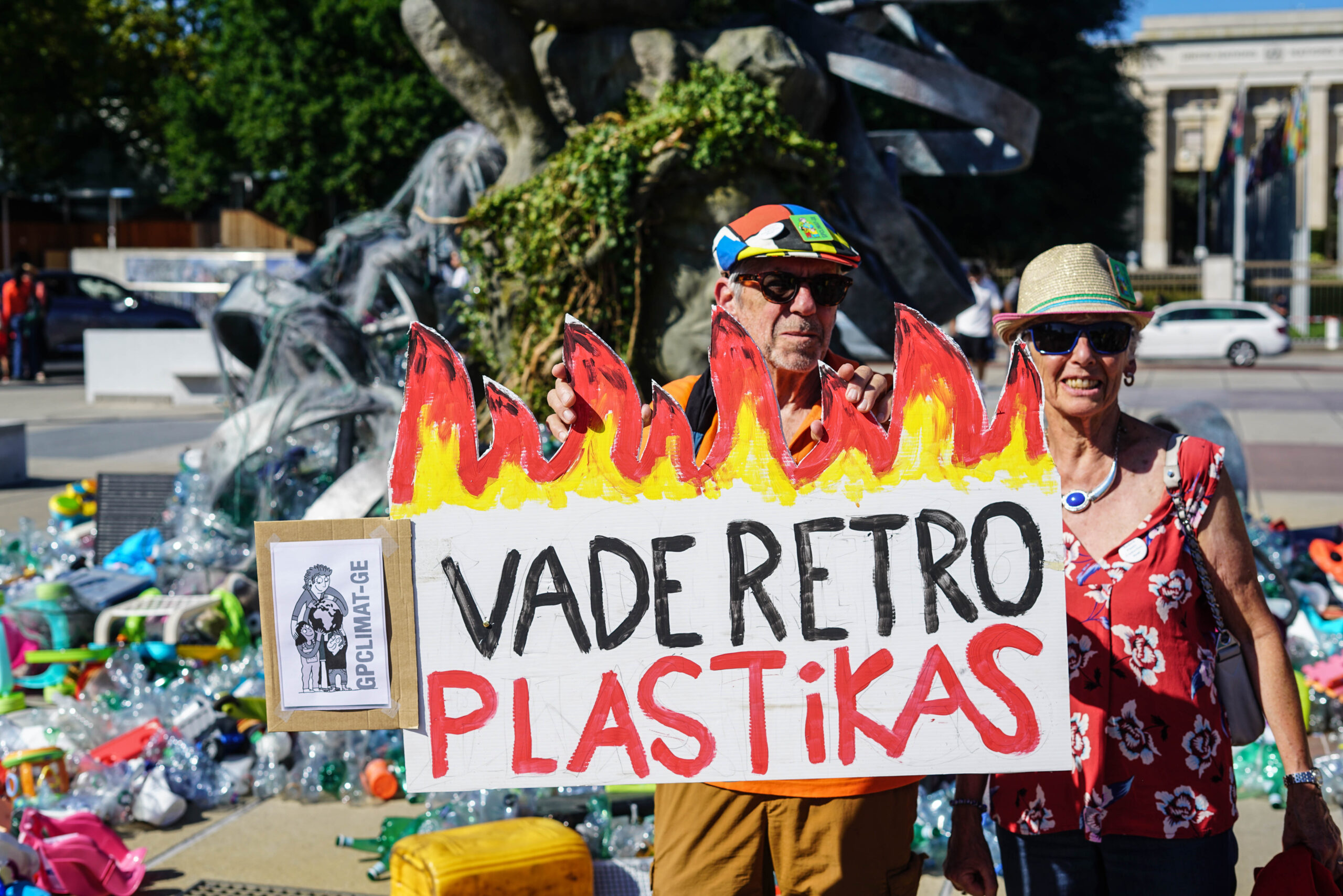Diplomats from 184 countries have kicked off what is billed as the final round of negotiations aimed at securing a global UN pact to prevent the world from “drowning in plastic pollution”.
Over the next ten days in Geneva, Switzerland, they will be trying to thrash out a legally binding agreement after talks broke down last November, at a previous “final” conference in Busan, South Korea.
To avoid the same fate, negotiators will need to bridge deep divisions over how the treaty should go about stemming the rising flow of plastics, which are overwhelmingly made from planet-heating oil, gas and coal.
A coalition of nearly 100 countries, including the EU, Canada, Australia and many African, Latin American and Pacific Island nations, pledged its support to provisions aimed at reducing virgin plastic production to “sustainable levels”. But states with large fossil fuel and petrochemical industries such as Saudi Arabia, Russia, Iran – now joined by the US under Donald Trump – instead want the treaty to focus on recycling and “voluntary” measures.
The climate impact of the plastics crisis
Climate is not mentioned once in the 22-page text serving as the basis for negotiations. But the outcome of the talks in Geneva could have a profound impact on the world’s efforts to limit global warming to the Paris Agreement goal of 1.5°C above pre-industrial levels.
Greenhouse gas emissions from soaring plastic production could almost triple by mid-century and account for up to nearly one-third of the remaining 1.5°C compatible global carbon budget, according to analysis from the Lawrence Berkeley National Laboratory.
The global plastics treaty must move forward, with or without the US
With oil and gas-producing countries seeing the industry as a lifeline in a world gradually shifting away from fossil fuels in energy systems, plastic production is set to triple by 2060 without intervention, according to the OECD. Only 9% of plastic is recycled globally, with the majority ending up in landfills or leaking into oceans and rivers.
“If we continue on this trajectory, the whole world will be drowning in plastic pollution,” said Inger Andersen, executive director of the United Nations Environment Programme (UNEP), which convened the talks.
In comments made in the opening plenary, she added that, after the talks in Busan, she had seen “a real surge in diplomacy” with a possible agreement appearing in sight. “This path is narrow and at times precarious with steep drops on either side,” acknowledged Andersen, who urged countries to take inspiration from Switzerland’s alpine spirit to “find the way”.
A risky compromise?
During the opening session, Ecuadorian diplomat Luis Vayas Valdivieso, chair of the plastics negotiations, called on diplomats to find a balance between the common good and national interests. “This moment demands concrete and meaningful progress. Not maximalist positions but joint solutions, not fingerpointing but pragmatic engagement,” he told diplomats.
An economic lifeline: Why Iran opposes production curbs in UN plastics treaty
But some negotiators and campaigners are worrying that an ambitious deal risks being sacrificed on the altar of pragmatism.
Christina Dixon, ocean campaign leader at the Environmental Investigation Agency (EIA), cautioned that there was “a real risk of weak compromise in order to placate the fossil fuel industry and ensure negotiators do not go home empty-handed again”.
“There is hope for a workable treaty, but there is a clear and worrisome recognition that the most ambitious have been willing to compromise enormously, while the least ambitious have refused to budge at all,” Dennis Clare, legal advisor for the Pacific Island nation of Micronesia at the talks, told Climate Home.
“No production caps”
While some countries had previously pushed for the inclusion of stringent plastic manufacturing curbs in the treaty, the self-described high-ambition coalition now simply wants the introduction of a vaguer global target and reporting requirements to make plastics supply chains more transparent.
In an opening press conference on Tuesday, Katrin Schneeberger, director of the Swiss government’s environment agency, was at pains to point out that “there is no call for a production cap”.
“Clarifying this in informal meetings was an important message to producing countries,” she added.

It remains to be seen what results this olive branch can produce in closed-door meetings. Out in the open, during the first plenary discussion, representatives from Saudi Arabia and Iraq took to the floor to repeat their view that the treaty should not deal with plastic production and, if there is no consensus on this issue, discussions should “swiftly move on”.
But, at least on Tuesday morning, fossil fuel reliant nations stopped short of deploying in the plenary hall what many observers have long decried as “time-wasting” tactics that, in Busan last year, delayed the start of formal negotiations by nearly a full day.
A delighted Valdivieso was able to wrap up the session in just over two hours and rush off diplomats to close-door meetings with the hope that the agreement will finally take shape over the next few days.
EIA’s Dixon said that “to secure an agreement on production, the most ambitious countries will have to hold the line” and resist the “vested interests of the fossil fuel industry”. “We should not accept just ‘any’ deal,” she added, “we need a strong deal for people and planet”.

